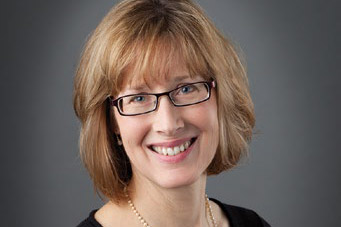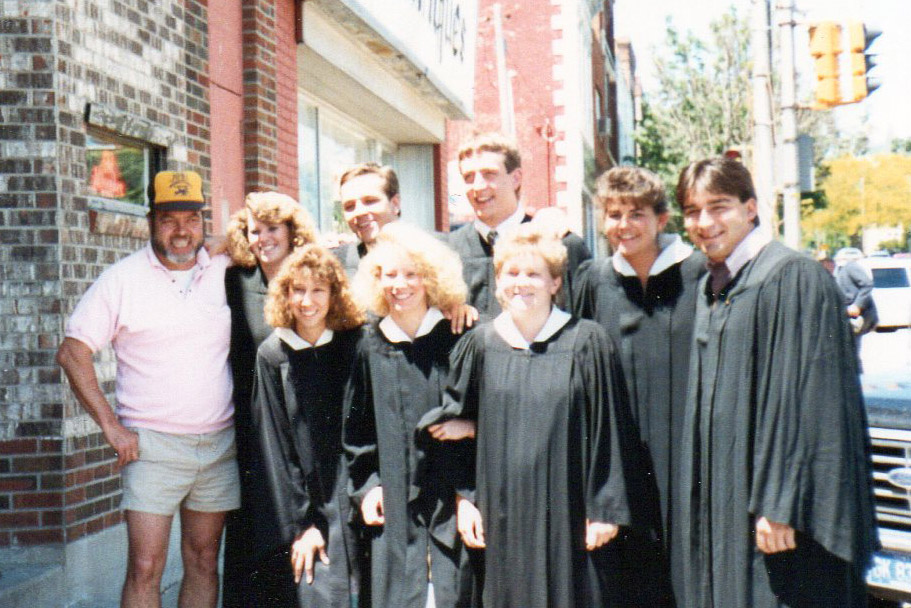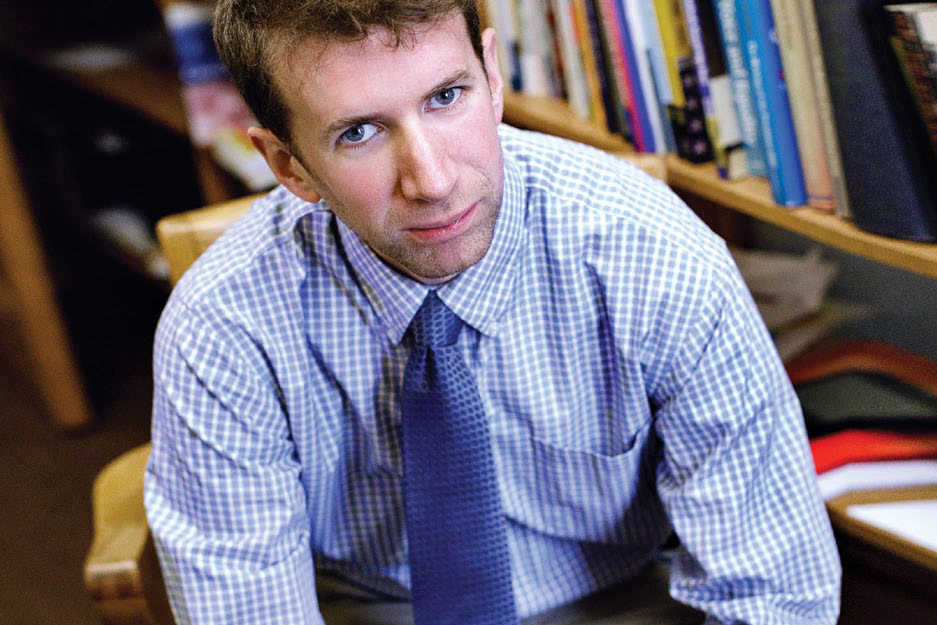Spring 2017: In Brief
Fulbright award takes Martin to Berlin
Professor of Music James Martin will spend six weeks at the University of Berlin’s John F. Kennedy Institute as a Fulbright specialist, teaching and advising the Institute on curriculum and faculty development. The program connects U.S. scholars with scholars overseas, and candidates are highly experienced in their academic disciplines. Mar-tin, who is in his 35th year at Cornell, teaches and performs research in piano, music history from 1600 to the present, opera, Beethoven, Wagner, John Cage, and the history of the avant-garde. During his time in Berlin, he will teach graduate seminars on John Cage and the American avant-garde, as well as rock music.
Professor Meyer writes ‘superhero’ book
Assistant Professor of Kinesiology Kristin Meyer ’01 has published a children’s book called “The Adventures of Team Super Tubie.” She wrote it after her son, Camden, was placed with a feeding tube following his diagnosis of eosinophilic esophagitis.
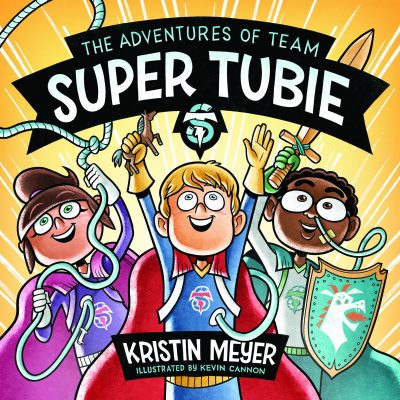
“I learned there were few books for children about feeding tubes, and none that depicted these kids as the true superheroes that they are,” says Meyer. “I want all kids, especially those with special medical needs, to identify with the characters in the book and feel empowered and special in their own lives.”
Plans for the book unfolded on scratch pads while she was at home with her four kids, and align with her work at Cornell.
“I teach courses in physiology, anatomy, and nutrition,” she says. “I have many student advisees who are interested in health professions, community service, and education — all of which are related to this project. In addition, I have a personal interest in issues of diversity and inclusion. There was a great deal of thought put into this book regarding ways to encourage messages of inclusion, acceptance, and empowerment for different genders, races, and special medical needs.”
WEB EXTRA: See a video of Kristi and Camden and learn more about the book.
Why ask why? and other questions
Why do we do the things we do? Why do we do them the way we do? How do we learn what to do and what not to do?
Starting in the fall of 2017, Cornell College students will get a chance to focus their studies on answering those types of questions in a newly created concentration in the Department of Psychology called behavioral neuroscience. Students will study social, developmental, and cognitive behavioral processes. The program will be an option for students considering graduate study in behavioral neuroscience and biological subfields of psychology, as well as those interested in health-related careers.
Professors in the Department of Psychology say this concentration will work well for students interested in many different sciences. It especially targets students who like to ask questions across interdisciplinary lines.
Professors Melinda Green, William Dragon, and Steven Neese, who joined the faculty last fall, will teach the behavioral neuroscience courses.
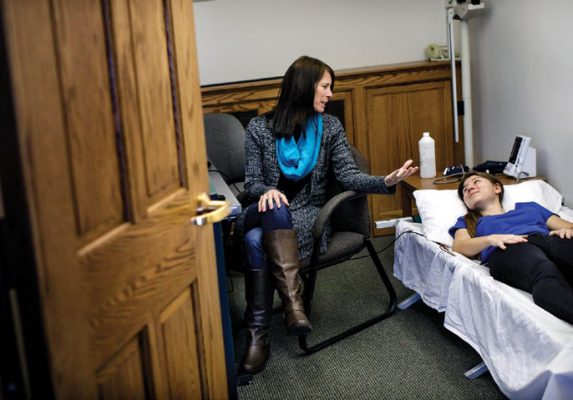 Help for eating disorder patients
Help for eating disorder patients
Associate Professor of Psychology Melinda Green is implementing and refining a method to significantly reduce eating disorder symptoms.
“Our intervention encourages women to criticize media messages that teach women and girls we must be thin to be considered beautiful,” Green says. “We also teach women and girls how to combat societal messages that teach us to define our worth in terms of our appearances.”
Green and her team completed a four-week study of 47 Eastern Iowa women, ages 14–34, who suffered from a variety of eating disorder symptoms. The researchers, including Cornell students, used what’s called a dissonance-based eating disorder program. The results were encouraging, with women who took part in the program displaying fewer eating disorder symptoms. They also showed lower levels of anxiety, fewer negative emotions, and decreased cardiac health risk. Green is putting her work into wider practice as she treats patients through a new online eating disorder prevention and treatment program.
Green is currently the Jerry and Carole Ringer Distinguished Professor, which provides funding for her research.

Norton building gives up its secrets
Each year dozens of Cornell students fan out across the globe to do research. Sometimes interesting topics are much closer to home. As in “just a few steps away” for Ryan Shanks ’16, who explored Norton Geology Center.
According to Shanks, a geology graduate, the project started with cataloging a massive collective of more than 7,000 magic lantern slides during his senior year. Some of the slides went back to the early days of the college. The slides (used in an early type of image projector) were only the beginning of his journey into Norton’s past.
Among the treasures was a collection of marble that Professor D. H. Wheeler gathered while serving as Abraham Lincoln’s ambassador to Italy.
“Each specimen is polished on one side, and has an original handwritten label attached to it,” Shanks says. “Many of the types of marbles represented by these specimens have been completely mined out for over a century, which makes this collection even more significant.”
As a result of his discoveries in Norton, Shanks has modified his career plans. “I have always wanted to become a paleontologist and pursue a degree in paleontology. Now I have decided to pursue a museum studies degree as well,” he says.
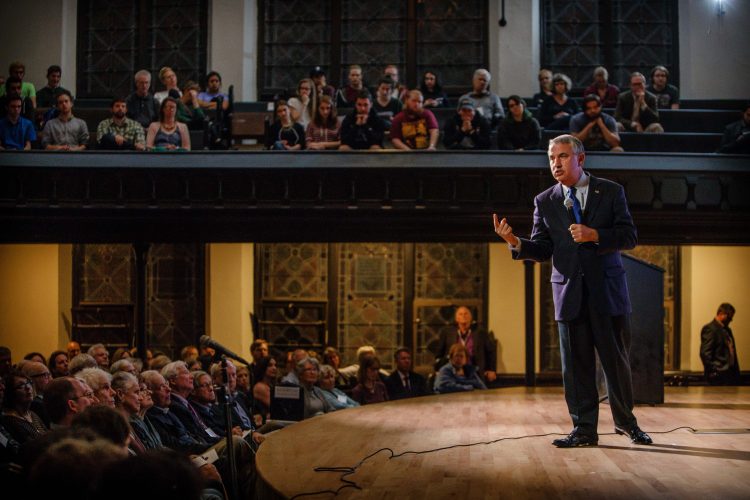
WEB EXTRA: See a video clip from Friedman’s speech in King Chapel
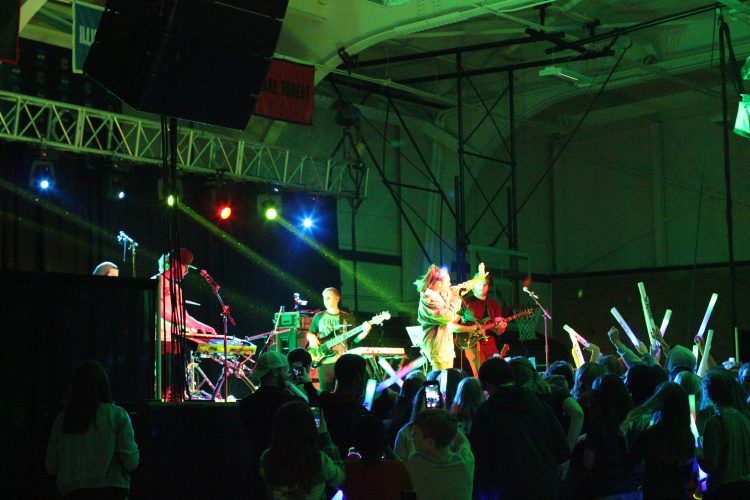
The Top 10 list
Top 10 Cornell College academic programs by number of students:
- Psychology
- Kinesiology
- Biochemistry and molecular biology
- Economics and business
- English
- Studio art/art history
- Computer science
- International relations
- Biology
- History

